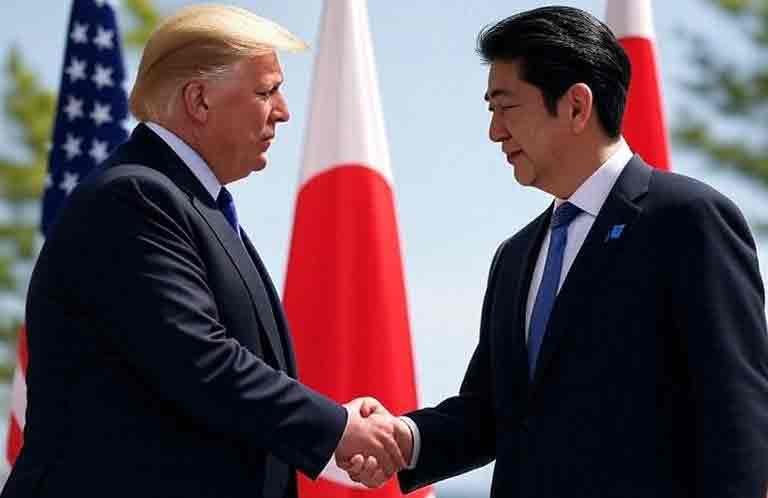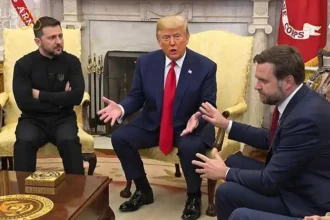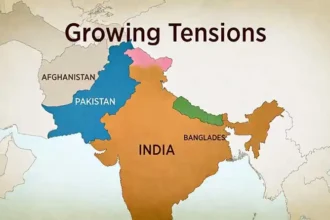On Wednesday evening, former U.S. President Donald Trump unveiled a historic trade
agreement with Japan, a daring decision that has already begun to reshape
international markets. The contract, which is valued at $550 billion, includes the
acquisition of 100 Boeing aircraft, as well as significant Japanese investments in
American defense, technology, and infrastructure, which will immediately bolster Asian
and Wall Street markets.
The announcement occurred during Trump’s economic meeting in Tokyo, where he
described the deal as “the most powerful trade partnership the United States has ever
signed with Japan.” Japanese officials shared the confidence, describing it as a
“strategic economic alignment” that might shape Asia-Pacific commerce for the next
decade.
What’s included in the deal
Japan has announced a $550 billion investment package in US sectors such as AI,
energy, and transportation.
Orders for 100 Boeing aircraft will directly assist US manufacturing.
Tariffs have been reduced on several Japanese electronics and automotive
items.
Promises of increased cooperation in cybersecurity and chip manufacturing.
Reactions in the Market
With double-digit gains for leading Japanese exporters like Toyota and Mitsubishi
Electric, the Nikkei 225 jumped 3.5% after the announcement. In the United States,
Boeing’s stock increased by almost 7% during after-hours trading, and the Dow and
S&P 500 also saw gains.
According to economists, this will boost confidence in the already weak global economy.
Morgan Ellis, a senior trade analyst at Global Markets Watch, stated that this agreement
gives investors peace of mind that international cooperation endures in spite of
problems elsewhere.
Why Does It Matter?
The agreement is more than just numbers; it is also about influence. With growing
economic tensions between the United States and China, Japan appears to be
emerging as a solid ally and trading partner. The pact also demonstrates Japan’s
intention to position itself as Asia’s leading technology and energy hub.
As the ripple effects spread through the Asian and US stock markets, investors are
keeping a close eye on whether this will serve as a model for future deals, with other
Asian economies are potentially following suit.
visit News Neck today













